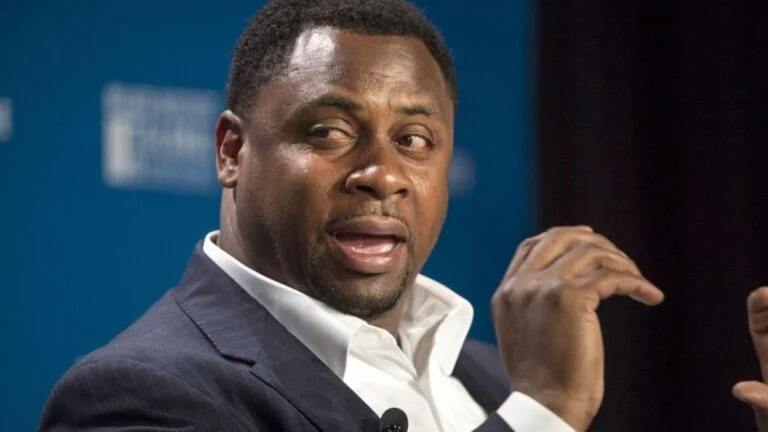Florida Gators sophomore quarterback DJ Lagway isn’t just making headlines on the field—he’s rewriting the rules of college athletics’ Name, Image, and Likeness landscape. In a groundbreaking move, Lagway signed […]
Billy Napier’s Hot Seat: Why One Win Over Texas Isn’t Enough
The Florida Gators’ stunning upset over No. 5 Texas last Saturday sent shockwaves through college football. For one glorious afternoon in Gainesville, it looked like head coach Billy Napier might […]
“Latest News: San Francisco Giants announced a bronze statue of Legendary Krup & Kuip outside the Oracle Park stadium. This measure is welcomed as… see more.”
San Francisco Giants Announce Bronze Statue of Legendary Kruk & Kuip Outside Oracle Park The San Francisco Giants have officially announced one of the most heartfelt tributes in franchise history: […]
No.1 top player in America stands 8.5-foot-tall flips Commitment from Florida Gators to Tennessee vols basketball team
The Colossal Shift: 8.5-Foot-Tall Basketball Prodigy Changes Commitment from Florida Gators to Tennessee Volunteers In a stunning development that has sent shockwaves through the college basketball world, the nation’s […]
BREAKING NEWS: Wisconsin Badgers Football Legends Troy Vincent has finalized a landmark agreement deal reportedly worth about $172.6 million to become their new…. See more
In a groundbreaking development that has sent ripples across the college football community, Wisconsin Badgers football legend Troy Vincent has finalized a landmark agreement reportedly worth $172.6 million to become […]
Netflix Unveils “The Never-Before-Told Story of The Top 10 Moments in Badgers History: Part 1″…
Netflix Unveils “The Never-Before-Told Story of The Top 10 Moments in Badgers History: Part 1” Madison, WI – Netflix has released the highly anticipated documentary, “The Never-Before-Told Story of […]
**Surprise Commitment: Nation’s No. 1 QB Flips to Duke nation basketball at Midnight — Calls Duke nation basketball “The Only Choice That Felt Like Home”**
In a stunning and unexpected turn of events, the nation’s top-ranked quarterback prospect, Jordan Carter, announced late last night that he is switching his athletic allegiance from football to basketball, […]
No.1 American football player bo nix : stuns football community by decommiting from origon duck football to join Florida Gators..
No. 1 American Football Player Bo Nix Shocks Football Community by Decommitting from Oregon Ducks to Join Florida Gators… In a stunning turn of events that has sent ripples through […]
Surprise Commitment: Nation’s No. 1 Four-Star QB Flips to Florida Gators Football at Midnight..
n a stunning turn of events that has sent shockwaves through the college football world, the nation’s top-ranked five-star quarterback has announced his surprise commitment to the Florida Gators, flipping […]
Breaking: No.1 top best twins player in America flips commitment to Tennessee Volunteers softball over Florida Gators
Breaking News: No. 1 Twin Softball Players in America Flip Commitment from Florida Gators to Tennessee Volunteers In a stunning development that has sent shockwaves through the college softball […]









